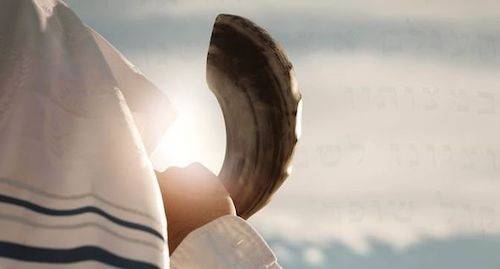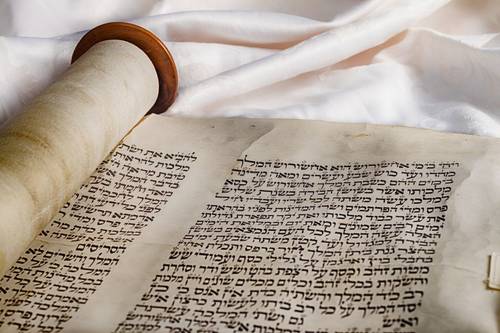High Holy Days 2025 | 5786

High Holy Days 2025 | 5786
SCHEDULE | ELUL | ROSH HASHANAH | YOM KIPPUR | SUKKOT | SH'MINI ATZERET AND SIMCHAT TORAH | HIGH HOLY DAYS BROCHURE | LIVE STREAM TECH TIPS
PJTC has reimagined its approach the High Holy Days, taking the best of the creativity we applied during the pandemic's virtual experiences and combining that with the tried and true High Holy Days programming we are now able to do in person once again.
We are proud to present you with multi-access opportunities to join the PJTC community in celebrating our holiest of days, with programming options for members as well as non-members, near and far.
Please look below to see what we have in store—we’d be delighted for you to join us!
Register for High Holy Days 2025 | 5786 here!
The Month of Elul | August 25–September 23, 2025
A Month of Emotional and Spiritual Preparation
The month prior to Rosh Hashanah, the Jewish New Year, is Elul. It is used as a time to mentally, emotionally and spiritually prepare for the transition to a new year. Jewish leaders encourage the month of Elul to be a time of introspection and personal stock-taking (known in Hebrew as cheshbon hanefesh—an accounting of the soul), as well as a time for repentance (known in Hebrew as teshuvah—returning). The customs of Elul are meant as preparation for Rosh Hashanah, when Jewish tradition teaches us that divine judgement and forgiveness is given. This year's programming includes a series of workshops taught by our clergy team.
Rosh Hashanah | September 22–24, 2025
Let's Take Stock and Rejoice!
Rosh Hashanah is the Jewish New Year, taking place at the beginning of the month of Tishrei—the beginning of the Jewish civil calendar year. It is a two-day celebration of the new year, which follows a month of spiritual and emotional preparation during the month of Elul. This celebration is meant to both rejoice in the completion of another year and to look inward and take stock of that year that has passed. Rosh Hashanah also precedes the Ten Days of Repentance, also known as the Days of Awe, which concludes in the Day of Atonement, Yom Kippur. A major part of the Jewish High Holy Day traditions, Rosh Hashanah has its own customs we practice.
To learn more about the customs and significance of Rosh Hashanah, as well as find some helpful online resources and details about our upcoming programming and services, click here.
Yom Kippur | October 1–2, 2025
May You Be Inscribed for a Good Year in the Book of Life!
Yom Kippur is the Jewish religion's Day of Atonement (reparation for a wrong or injury). Jews traditionally ask for forgiveness for their wrongdoings over the past year, believing that on this day, God places a seal on the Book of Life, in which he has inscribed our names for the year to come. This one day of observation falls ten days after Rosh Hashanah (the Jewish New Year), beginning at sundown and ending at sundown the following day.
To learn more about the customs and significance of Yom Kippur, as well as find some helpful online resources and details about our upcoming programming and services, click here.
Sukkot | October 6–13, 2025
The Harvest Festival
Sukkot, named after the huts that Jewish people are supposed to dwell within during this week-long celebration, begins five days after Yom Kippur. These sukkot (the huts) represent the temporary structures the Israelites constructed and lived in during their 40 years of desert wandering following their escape from slavery in Egypt. Also referred to as hag ha-asif (the harvest festival), much of the ritual of Sukkot is centered around thanking God for the completed harvest before the coming of the winter rains.
Sukkot is a joyful holiday, focused on rejoicing about the bounties provided to us by the land and God’s will. The simplicity of spending as much time as possible in nature and within the very basic, temporary shelter of a sukkah is meant to remind us of what is actually important in life, taking focus away from material possessions and modern world complications.
For Sukkot 2025, in addition to attending PJTC's Sukkot services, you can purchase your own lulav and etrog set, sign up to host a dinner in your sukkah (attendance sign ups will go out later), and even obtain a sukkah through our High Holy Days Registration Form.
To learn more about the customs and significance of Sukkot, click here.
Sh'mini Atzeret & Simchat Torah | October 13–15, 2025
Celebrate the Cycles of Harvest and Torah
After the seven joyous days of Sukkot, we celebrate Sh'mini Atzeret (The Eighth Day of Assembly), marking the end of Sukkot. During Sh'mini Atzeret, we gather again in the sukkah to celebrate God and our bounty, but without ritual and prayer…like the last guests at the party who have so much reason to rejoice that they stick around for one more hurrah. During Sh'mini Atzeret, we also pray for the rejuvenating rains of the next season.
Sh'mini Atzeret transitions us into Simchat Torah (Rejoicing in Torah), when—just as we mark the transition from harvest season to our rainy season of winter—we mark the end of the yearly cycle of public readings from the Torah and commemorate the beginning of a new cycle of Torah readings.
In addition to attending PJTC's Sh'mini Atzeret and Simchat Torah services, our community will be coming together for a giant Simchat Torah party, with dancing, music and food—and an opportunity for our newly minted B'nai Mitzvah (or anyone!) to read Torah in front of their peers.
To learn more about the customs and significance of Sh'mini Atzeret and Simchat Torah, click here.
Sun, November 2 2025
11 Cheshvan 5786
High Holy Day Registration
Registration for High Holy Days 2025 | 5786 is here.
Strategic Plan
View PJTC's Strategic Plan HERE. To download, click the same link and then print as PDF or click the downward facing arrow.
PJTC's "Guide to the High Holy Days 2025" Brochure
CLICK HERE TO SEE OUR "GUIDE TO THE HIGH HOLY DAYS" BROCHURE, complete with services schedules, additional programming and activities, tips, holiday resources and more!
Plan Ahead for Sukkot
Need to order youor Lulav and Etrog? We can help!
Click here to order them on our High Holy Days Registration Form.
Welcome | Spirituality | Community | Membership | Calendar | Giving | CONTACT
Pasadena Jewish Temple & Center
P.O. Box 41660
Pasadena, CA 91104
(626) 798-1161 | info@pjtc.net
Stay connected!
Help us grow by giving us a review on YELP, FACEBOOK and GOOGLE.
View PJTC's Strategic Plan HERE. To download, click the same link and then print as PDF or click the downward facing arrow.
Privacy Settings | Privacy Policy | Member Terms
©2025 All rights reserved. Find out more about ShulCloud







